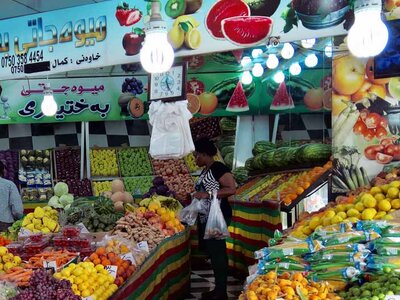Each time the World Food Programme (WFP) rolls
out
cash transfers, supply chain
experts
are involved right from the start.
Are the people we support getting the
best value for money with their cash
assistance? Are they able to cover their
basic food requirements, or
are shop prices too high due to inefficient
or disrupted supply chains? Is the quality of the food they buy
safeguarded? Can the retail sector supply the
additional demand generated by our cash-based
transfers, month after month? Are there
enough nutritious foods available throughout
the year?
Combining decades of experience
delivering food assistance
with creativity and agility in crafting the
most appropriate responses to fast-changing
needs, WFP’s supply chain staff works to
ensure that the people we serve receive the
type of assistance that best suits them within
the local context.
WFP recognizes that one size does not fit all.
In some cases, we work with selected
retailers, where
beneficiaries can buy the food they
prefer. In others, we opt for unrestricted cash,
allowing recipients to decide how, where and
when to purchase what they need for their
families.
WFP launches a variety of
assessments of different sectors, such as retail, finance and technology,
to choose the appropriate tool – whether it is cash, vouchers or e-cards
– to meet the
programmatic objectives in the local context .
In areas where we operate, we study
local retail conditions, supply chain
networks, prices and potential bottlenecks
or inefficiencies that we can help
remove.
We help selected wholesalers and
retailers plan ahead to avoid potential
supply breaks and negotiate better prices
from suppliers and transporters.
We work across the entire supply chain with
the broader goal to improve retail
management in local markets, and ensure that
our beneficiaries have access to good
quality foods that are consistently in stock
and available at fair prices. We support
retailers to better manage their
inventories, purchase their stocks, and
arrange transport and storage, so that they
are able to provide the best possible
service to all customers of WFP-contracted
shops.
Together, we apply business solutions to
humanitarian problems.
While our focus lies on how best to support
the people we serve, our work on
strengthening retail supply chains helps
entire communities
who shop at the same stores. After our
operations end, we leave behind a more
robust, sustainable and competitive
sector, where nutritious food is available – month after
month – at affordable prices
and poor families reap the benefits of
supply chain efficiencies.







